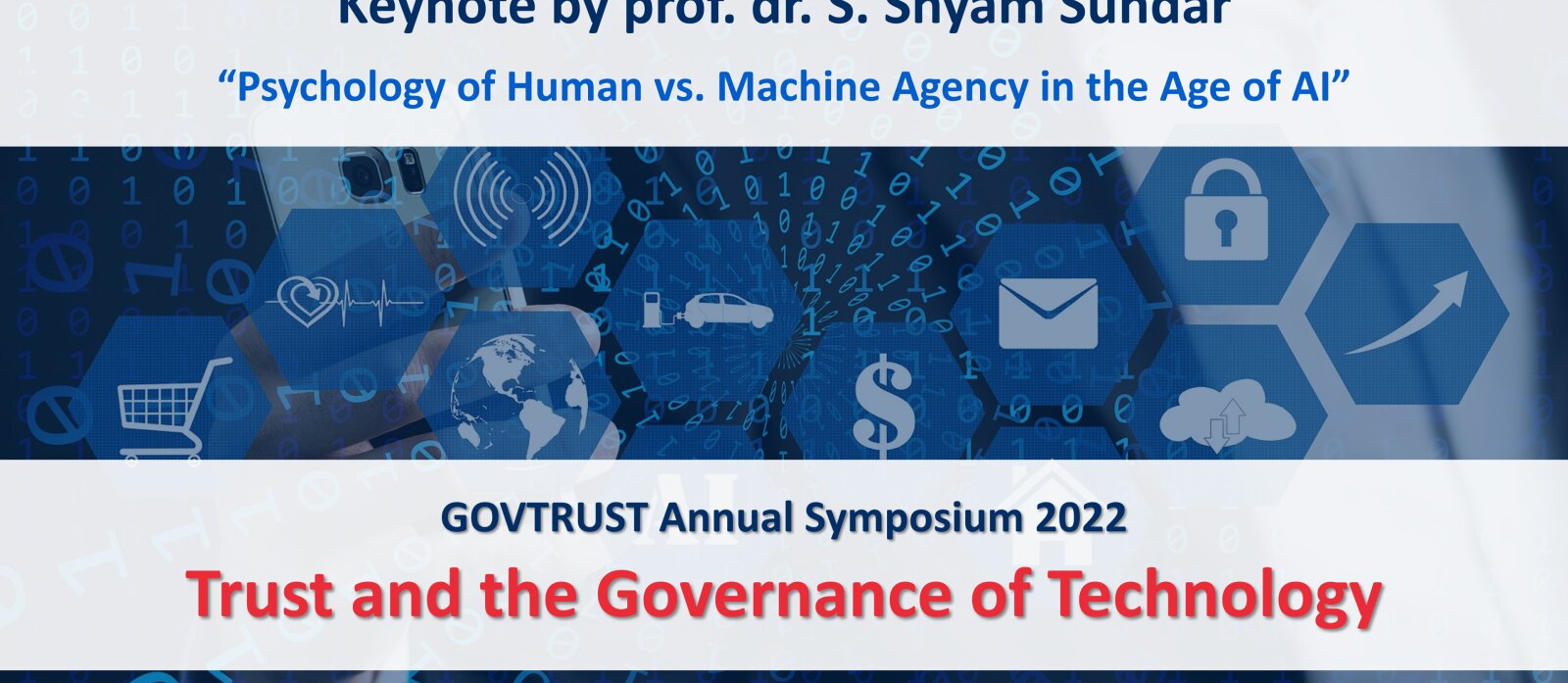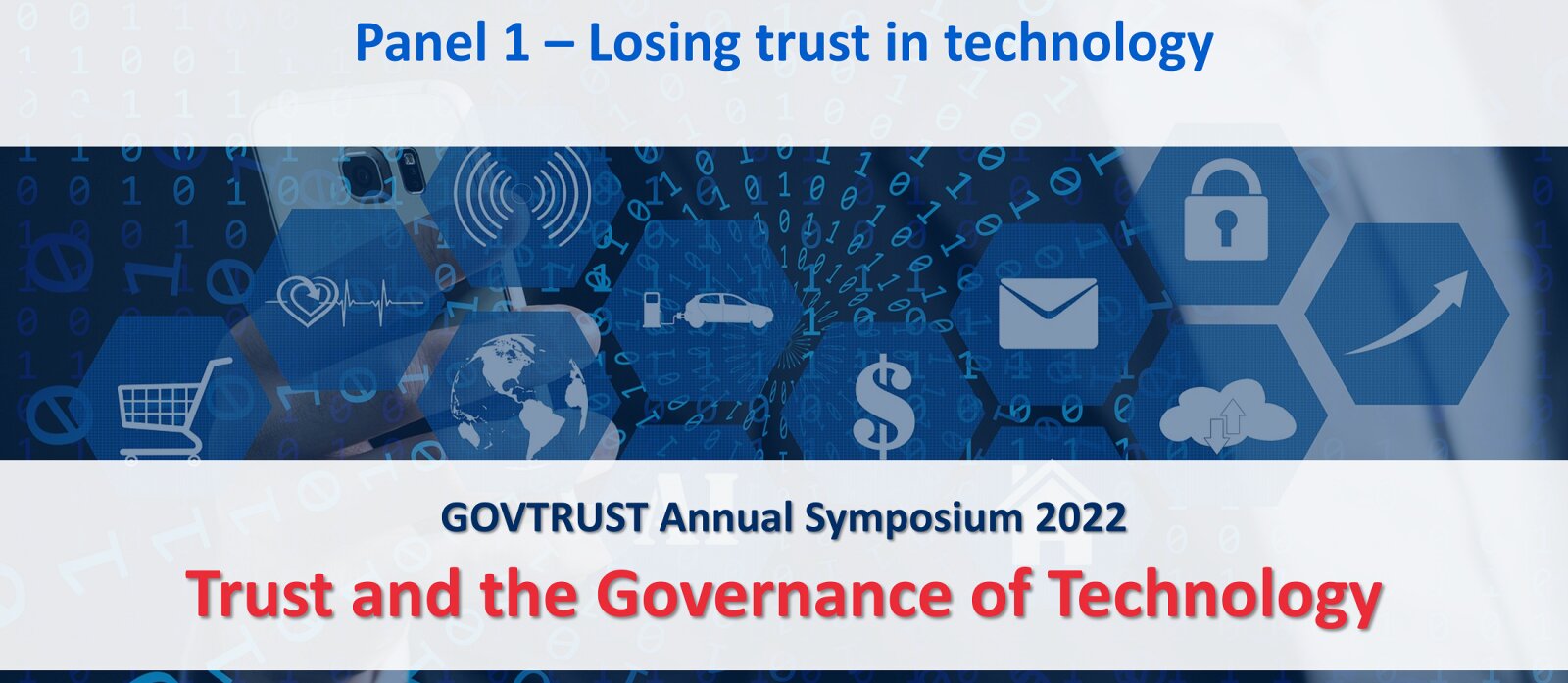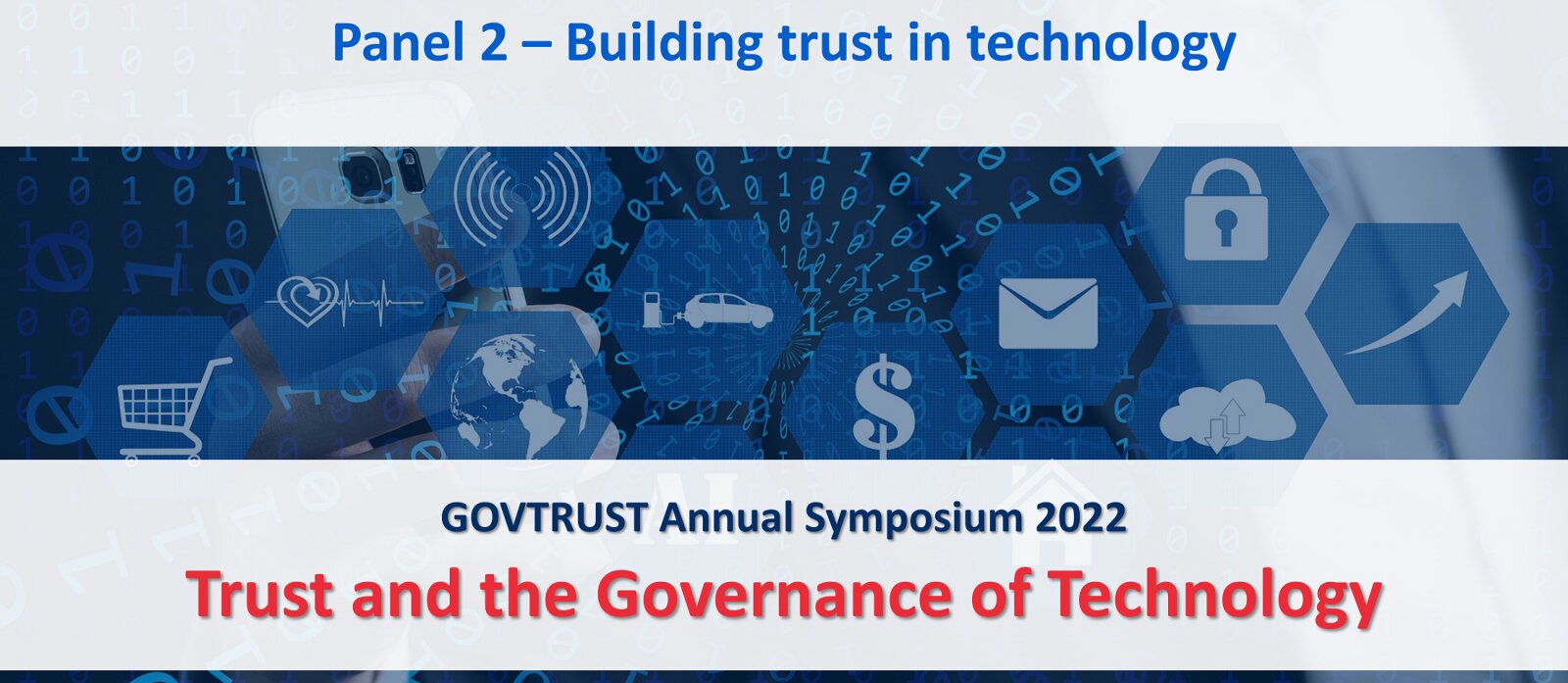>>> Symposium presentations, recordings and other relevant documents are available at the bottom of this page.
Trust and the Governance of Technology
17 February 2022 | 14:00 - 17:00 CET | Online event
Digital technologies have transformed our economies and societies. Governments too have sought to keep pace with emerging technologies, with a rapid growth of digital government services during the COVID pandemic. Despite the many benefits for both governments (e.g. efficiency and tailoring of services) and citizens (e.g. convenience and flexibility), the digital ecosystem also raises unique governance and accountability challenges. In addition, concerns about cybercrime, online disinformation, artificial intelligence and data privacy have significantly undermined public trust. As digital evolutions are accelerating, well-tailored governance structures are essential to (re)build the trust needed to harness the transformative potential of digital technologies for governments and citizens alike.
In this context, the GOVTRUST Centre of Excellence organised its second annual symposium on Thursday 17 February 2021, 14:00-17:00 CET. The theme of the symposium was “Trust and the Governance of Technology”. During this symposium, members of the GOVTRUST consortium and guest speakers presented recent work on the topic of trust and technology, identified key learning points, and raised some crucial questions and issues for discussion.

Programme
>>> Please find the Symposium presentations, related documents and recordings below.
14:00 - 14:10 | Welcome
- By prof. dr. Karolien Poels (GOVTRUST - research group Media & ICT in Organisations and Society)
14:10 - 14:50 | Keynote by prof. dr. S. Shyam Sundar
- S. Shyam Sundar is James P. Jimirro Professor of Media Effects, co-director of the Media Effects Research Laboratory and director of the Center for Socially Responsible Artificial Intelligence at Penn State. His research investigates social and psychological effects of human-computer interaction (HCI) and computer-mediated communication (CMC) with specific focus on technological elements in digital media, from websites and social media to smartphones and robots. Current research pertains to fake news, chatbots and smart speakers, AI algorithms, online privacy, social media effects, and the strategic use of media and communication technologies for motivating healthy and prosocial human behaviours. In a recent article, he identified trust as a key outcome to be considered with the rise of machine agency.
14:50 - 15:40 | Panel 1: Losing Trust in Technology
- Presentation on "COVID-19 contact tracing technology: what went wrong?" by prof. dr. Michel Walrave (GOVTRUST - research group Media & ICT in Organisations and Society)
- Presentation on "Managing your health through self-tracking" by prof. dr. Katleen Gabriels, a moral philosopher specialised in computer and machine ethics at Maastricht University
- Chair: prof. dr. Wouter Van Dooren (GOVTRUST - research group Politics & Public Governance)
15:40 - 16:00 | Break
16:00 - 16:50 | Panel 2: Building Trust in Technology
- Presentation on "How citizens trust or mistrust governmental AI projects" by dr. Bjorn Kleizen (GOVTRUST - research group Politics & Public Governance)
- Presentation on "The commodification of trust" by prof. dr. Balázs Bodó (Economist and socio-legal researcher at the Institute for Information Law at University of Amsterdam)
- Chair: prof. dr. Esther van Zimmeren (GOVTRUST - research group Government & Law)
16:50 - 17:00 | Closing
- By dr. Sophie Op de Beeck (Research manager of the GOVTRUST Centre of Excellence)
Symposium documents
S. Shyam Sundar - "Psychology of Human vs. Machine Agency in the Age of AI"
- Keynote presentation | Please see recording of keynote below
- Article "Rise of Machine Agency: A Framework for Studying the Psychology of Human–AI Interaction (HAII)" | view online
- Article "Machine Heuristic: When We Trust Computers More than Humans with Our Personal Information" | view online
Michel Walrave - "COVID-19 contact tracing technology: what went wrong?"
- Symposium presentation | download
- Article "Ready or Not for Contact Tracing? Investigating the Adoption Intention of COVID-19 Contact-Tracing Technology Using an Extended Unified Theory of Acceptance and Use of Technology Model" | view online
- Article "Reasons for Nonuse, Discontinuation of Use, and Acceptance of Additional Functionalities of a COVID-19 Contact Tracing App: Cross-sectional Survey Study" | view online
Katleen Gabriels - "Managing your health through self-tracking"
- Symposium presentation | download
- Article "Exploring Entertainment Medicine and Professionalization of Self-Care: Interview Study Among Doctors on the Potential Effects of Digital Self-Tracking" | view online
- Article "Technologies of the self and other: how self-tracking technologies also shape the other" | view online
Bjorn Kleizen - "How citizens trust or mistrust governmental AI projects"
- Symposium presentation | download
- EU AI HLEG "Ethics Guidelines for Trustworthy AI" | view online
Balázs Bodó - "The commodification of trust"
- Symposium presentation | view online
- Article "The Commodification of Trust" | view online
- Article "Here Be Dragons – Maintaining Trust in the Technologized Public Sector" | view online
- Blog post "The commodification of trust" | view online
Sophie Op de Beeck - "Key takeaways"
- Citizens' trust in (trust-inducing) technologies | download
Symposium recordings
Keynote by prof. dr. S. Shyam Sundar
Psychology of Human vs. Machine Agency in the Age of AI

Panel 1 - Losing Trust in Technology
Speakers: Michel Walrave and Katleen Gabriels

Panel 2 - Building Trust in Technology
Speakers: Bjorn Kleizen and Balázs Bodó
